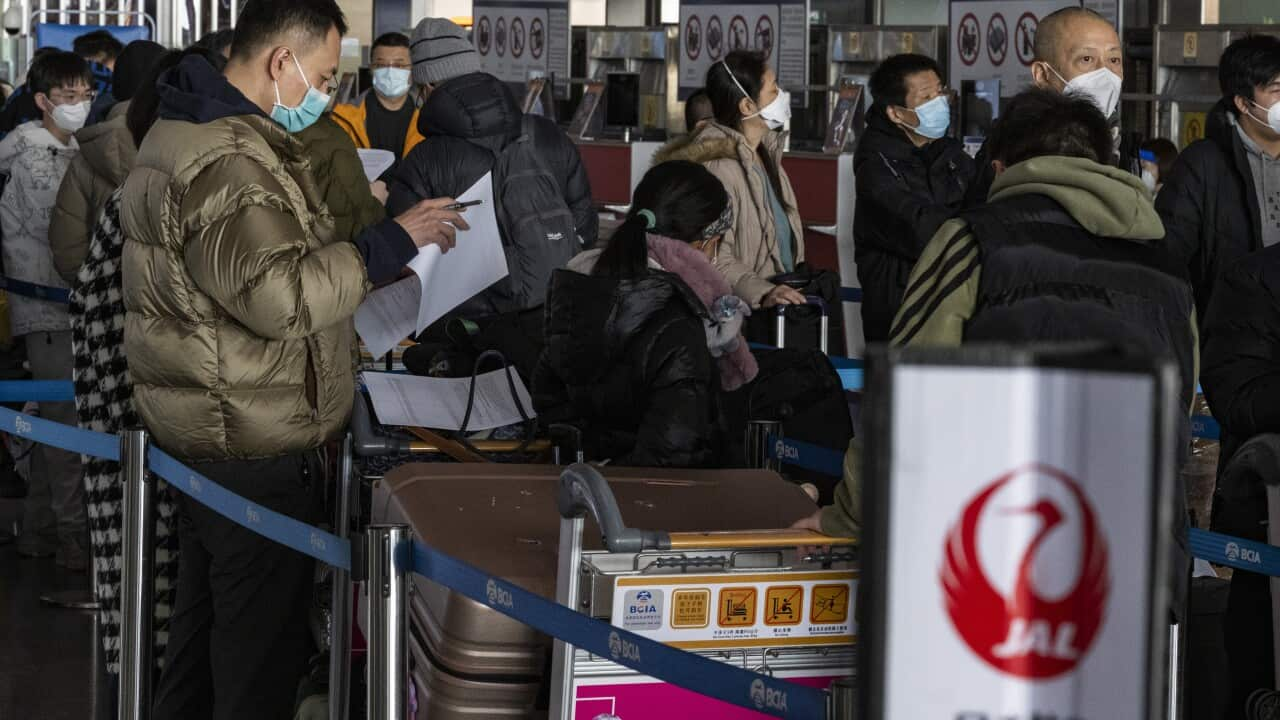Key Points
- New COVID cases continue to decline across Australia
- COVID-19 positive players will be allowed to play in the Australian Open
- WHO urge counties to sequence and report COVID data
New cases of COVID-19 are declining around the country.
Acting NSW chief health officer Dr Jan Fizzell says the key indicators show that the number of COVID- 19 cases is continuing to decline as expected.
However, we must all continue to take simple steps to keep safe and healthy, she said.
New South Wales and Victoria recorded the highest deaths in the seven-day reporting period, with 112 and 149 deaths, respectively. However, the number may reflect the delays in reporting during the holiday season.
COVID-19-positive players will still be able to compete in this year's Australian Open, Tennis Australia confirmed on Monday.
Tournament director Craig Tiley said that the decision reflects the COVID situation across Australia.
There are no vaccination or testing requirements imposed on players this year.
China has temporarily stopped issuing short-term visas to individuals from Japan and South Korea.
It is China's first countermeasure against countries that have adopted "discriminatory" entry restrictions against Chinese travellers.
"China firmly rejects a handful of countries' discriminatory entry restriction measures targeting China and will take reciprocal measures," the Ministry of Foreign Affairs spokesman, Wang Wenbin said on Tuesday.
As the new Omicron variant XBB.1.5 spread rapidly in the United States, the World Health Organisation (WHO) has urged mask-wearing on long flights.
"This should be a recommendation issued to passengers arriving from anywhere where there is widespread COVID-19 transmission," WHO's Catherine Smallwood said.
Since the peak of the Omicron wave, the number of SARS-CoV-2 sequences shared by the world has dropped by more than 90 per cent, director-general of WHO, Tedros Adhanom Ghebreyesus revealed on Thursday.
He reiterated the importance of sequencing to detect and track the emergence and spread of new variants.
"The world cannot close its eyes and hope this virus will go away. It won't."
The number of death reported to WHO each week has dropped almost 90 per cent since February last year, however it has been "stuck" between 10,000-14,000 per week since mid-September.
"The world cannot accept this number of death when we have the tools to prevent them," says the director-general.
Last week almost 11,500 death were reported to WHO, but WHO says this is an underestimate due to underreporting of COVID-related death by China.
"We ask all countries to provide this data. The more data we have, the clearer a picture we have[of the pandemic]."
According to WHO's latest COVID-19 epidemiological update, there has been a reduction in weekly cases and death by 9 per cent and 12 per cent, respectively, across the globe.
At the country level, the highest numbers of new weekly cases were reported from Japan, the US, the Republic of China and Brazil, with Japan recording its highest-ever daily COVID death toll.
Find a Long COVID clinic
Find a COVID-19 testing clinic
Register your RAT results here, if you're positive
Read all COVID-19 information in your language on the


